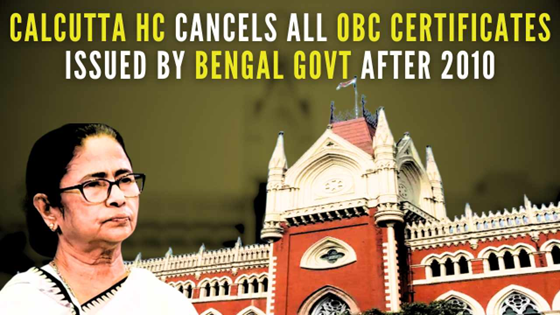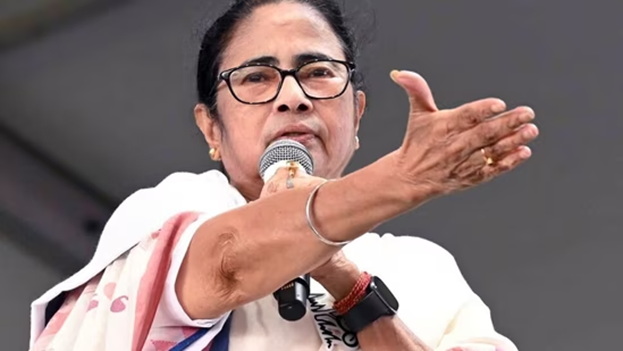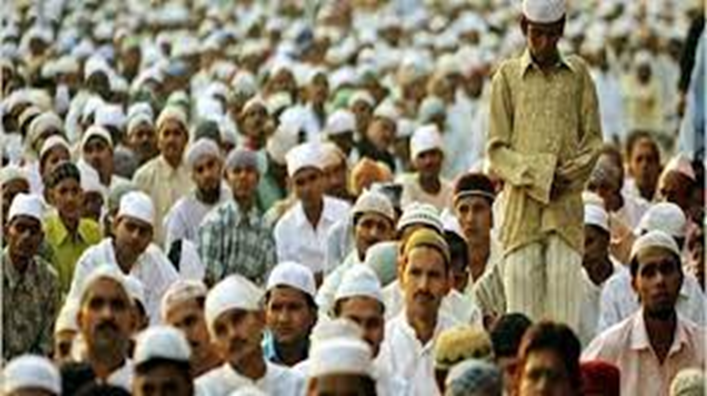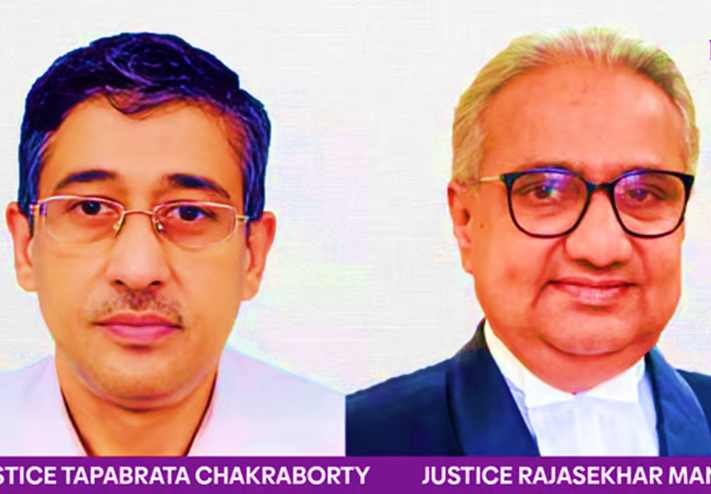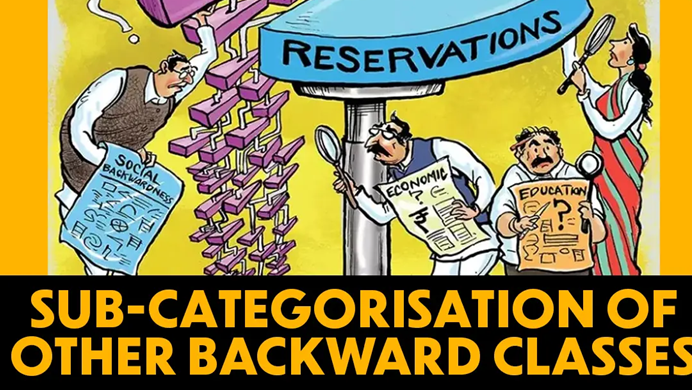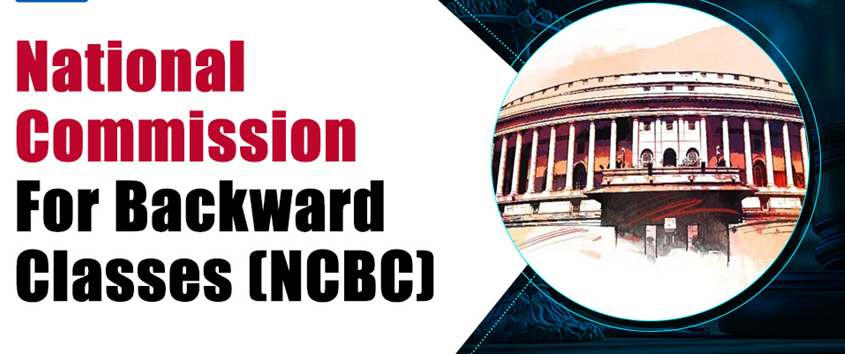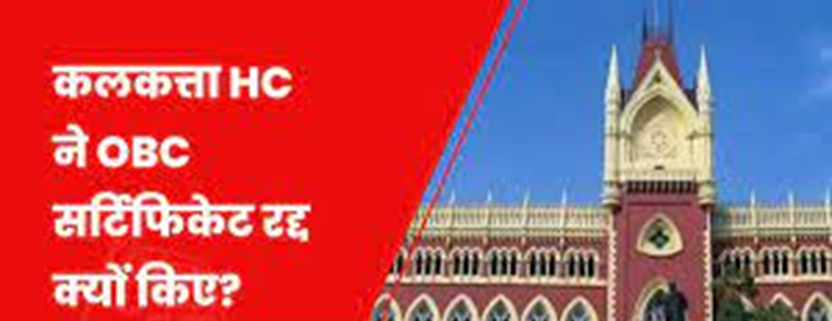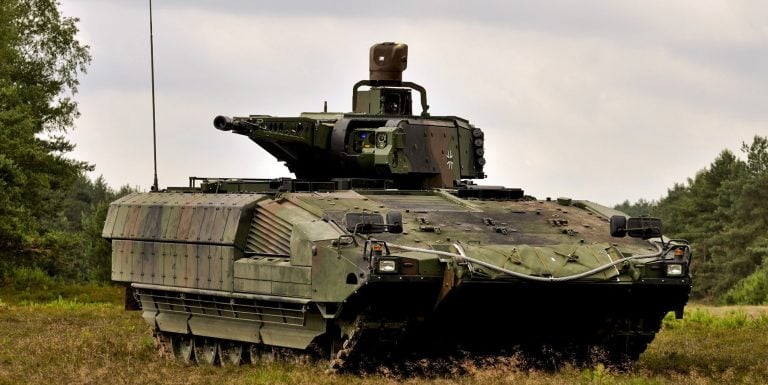Calcutta High Court cancelled 5 lakh OBC certificates issued by the West Bengal government since 2010, calling such reservations in jobs and services in the state illegal. The court said “religion” seems to be the “sole criterion” for declaring these communities as OBCs.
Calcutta High Court Cancels 5 Lakh OBC Certificates
Why In News
- Calcutta High Court cancelled 5 lakh OBC certificates issued by the West Bengal government since 2010, calling such reservations in jobs and services in the state illegal. The court said “religion” seems to be the “sole criterion” for declaring these communities as OBCs.
All You Need To Know
- Court Was Hearing A Public Interest Litigation Challenging Provisions Of The West Bengal Backward Classes (Other Than Scheduled Castes And Scheduled Tribes) (Reservation Of Vacancies In Services And Posts) Act, 2012. During That Time, The Communist Party Of India- Marxist Was In Power In West Bengal Till 2011. Then, Mamata Banerjee-led Trinamool Congress Took Over In The State.
- High Court set aside the classification of 37 communities as OBCs. The court was hearing a public interest litigation challenging provisions of the West Bengal Backward Classes (Other than Scheduled Castes and Scheduled Tribes) (Reservation of Vacancies in Services and Posts) Act, 2012.
- Hours later, Banerjee said she will not accept the order, and OBC reservation will continue.The court passed the judgment on petitions challenging the provisions of the state’s reservation Act of 2012 and reservations granted in 2010.
- The number of enlisted persons under the OBC category in West Bengal after 2010 is likely to be above 5 lakh.
- While the court scrapped the 77 classes for the illegality of reports recommending such classification, the other 37 classes were set aside for non-consultation of the West Bengal Backward Classes Commission.
- The bench also struck down an executive order of May 11, 2012, creating several sub-classes.
- In the 211-page judgement, the division bench comprising justices Tapabrata Chakraborty and Rajasekhar Mantha clarified that the executive orders of the state government classifying 66 classes of OBC before 2010 were not interfered with, since these were not challenged in the petitions.
Key Reasons Behind This Landmark Decision:
- The court found that the classification and sub-classification of OBCs carried out through several executive orders and memos were illegal. Specifically, the addition of 77 classes between 2010 and 2012, and their sub-categorisation under the West Bengal Backward Classes (Other than SC and ST) (Reservation in Posts) Act of 2012, were not in accordance with the law.
- Article 16(4) of the Indian Constitution allows the state to make provisions for the reservation of appointments or posts in favour of any backward class of citizens which, in the opinion of the state, is not adequately represented in the services under the state.
- The court also noted a lack of ‘procedural integrity’ and manifest arbitrariness in the reports and recommendations of the Backward Classes Welfare Commission. The identification and inclusion of certain classes were not carried out through a transparent and fair process, which is a mandatory requirement for such significant decisions.
- The High Court determined that the executive orders issued by the state government were a colourable exercise of power. This means that the powers vested in the government were used for a purpose other than that for which they were intended, leading to classifications that did not genuinely reflect the backwardness criteria mandated by law.
